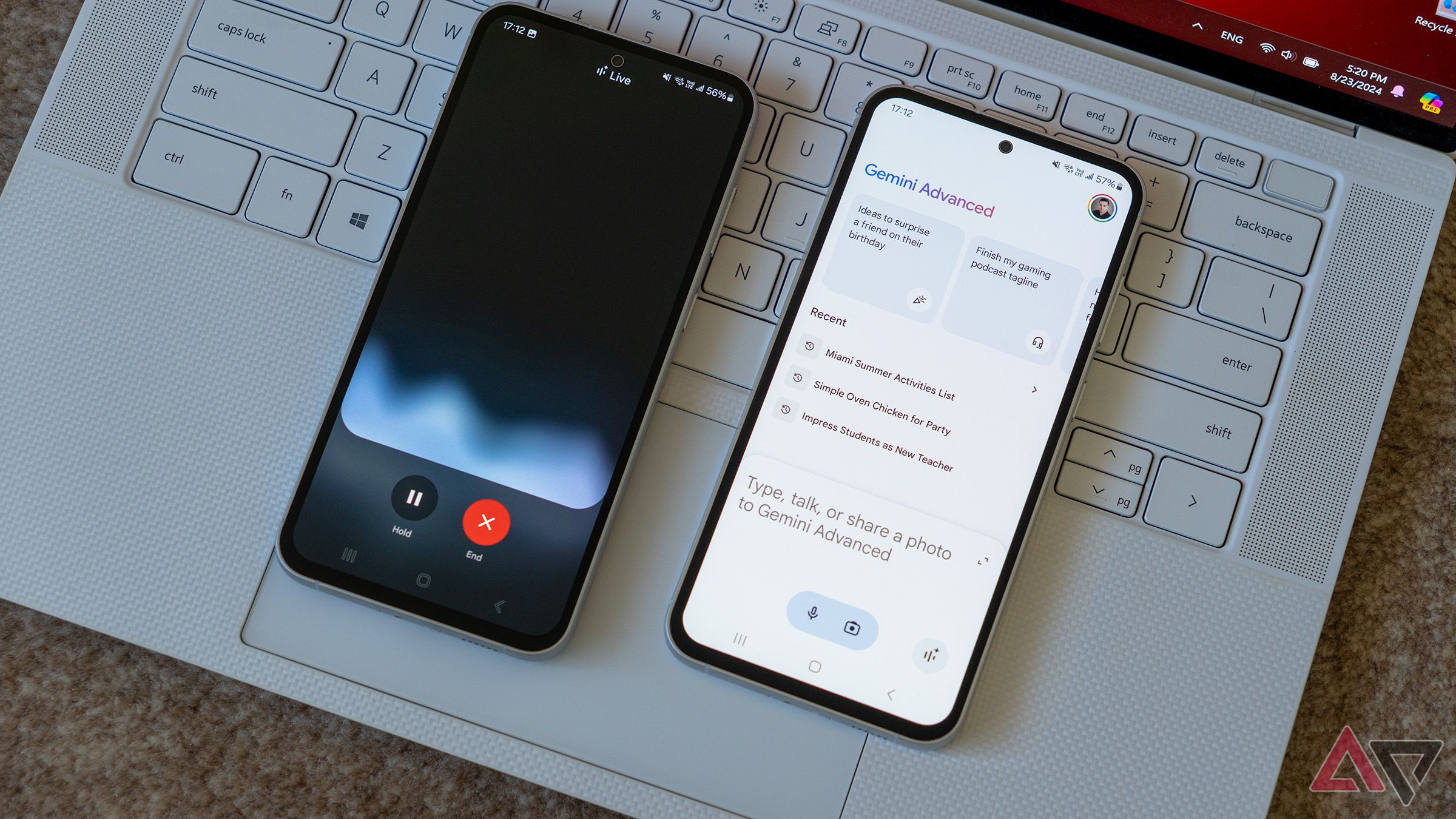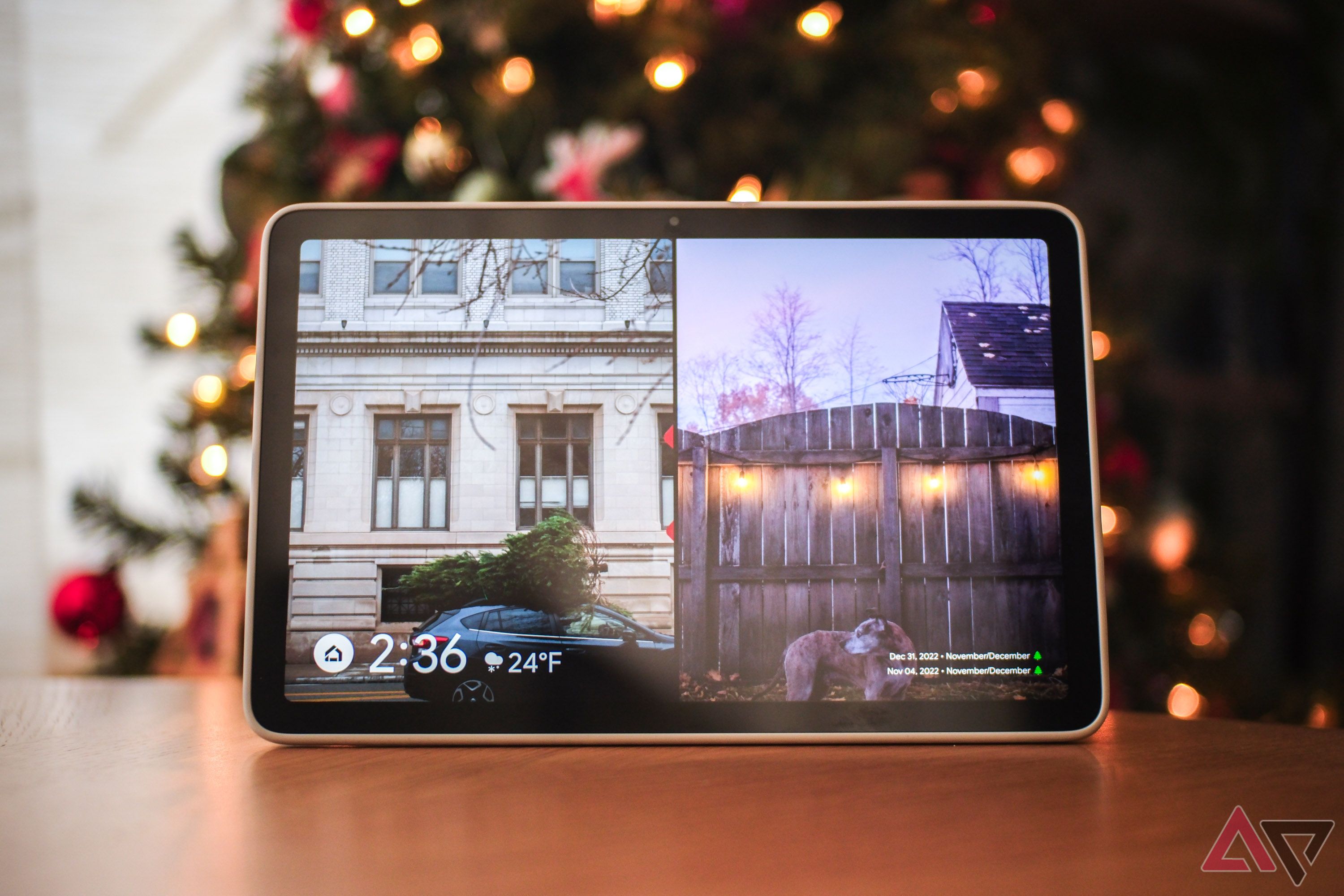It’s been a prolific week for Pixel leaks. That’s not all that noteworthy — we’re used to having a pretty clear picture of Google’s next-gen hardware before it’s officially announced. What has been a little unusual is that the leaks we’ve seen this week are about not just the upcoming hardware generation, but also the one after that, and even a new Pixel tablet that’s apparently planned for 2027. The info evidently all originates in documents leaked from Google’s gChips division — maybe not great news for that team, but plenty to chew on for us.
Welcome to Compiler,
your weekly digest of Google’s goings-on. I spend my days as Google Editor reading and writing about what Google’s up to across Android, Pixel, and more, and sum it up right here in this column. This is the Google news you need to understand this week.
Google’s gChips division has sprung a big leak
Writing for Android Authority, prolific Pixel leaker Kamila Wojciechowska has been reporting on what she calls “an unprecedented leak from Google’s gChips division” this week. Wojciechowska’s published stories about next year’s Pixel 10; 2026’s Pixel 11 and Pixel Watch 5; and even a Pixel Tablet evidently planned for release in 2027.
The reports tell us that the Tensor G5 and Tensor G6 are both well into development, and that the 2026 Pixel Watch 5 may be Google’s first wearable to run on custom silicon. The Tensor G5 will mark a shift in Google’s chip strategy: while prior generations of Tensor chipset have been manufactured by Samsung, the G5 will be built by TSMC, the Taiwanese firm that makes the custom chipsets Apple uses in its phones, tablets, and computers. We’re not expecting night-and-day differences versus the Pixel 9’s Tensor G4 — but the leaks get more interesting as they delve into some of the more tangible upgrades to expect out of Google’s new hardware.
With an improved TPU, the Tensor G5 expected to debut in the Pixel 10 will evidently allow for AI-based video editing. It probably won’t be a Pixel-branded Sora competitor, though; Wojciechowska speculates that “Post-capture Generative AI-based Intuitive Video Editing for the Photos app” described in the gChips leak will allow the Tensor G5 to “understand” video content and provide editing tools based on that understanding.
I can imagine AI-based tools for enhancing video quality, replacing backgrounds, or adding effects that dynamically react to video content, but I wouldn’t expect a video version of Google Photos’ reimagine tools. The documents also mention a feature called Magic Mirror, but Wojciechowska says there wasn’t enough context to hint at what that feature might be. The Tensor G5 will reportedly support 4K60 HDR video recording, a big improvement from the 4K30 HDR possible with Tensor G4.
The Pixel 11 could get under-display IR cameras that would let face unlock work in the dark.
The Tensor G6-equipped Pixel 11, meanwhile, could support 100x telephoto zoom through a combination of hardware and software improvements. Wojciechowska says the leaked documents specifically reference a “next-gen” telephoto camera for the Pixel 11, but even so, I’m not holding my breath that 100x zoom using lenses and sensors small enough to fit in a smartphone will actually be usable, at least not within the next few years. The 20x hybrid zoom available on the Pixel 9 Pro might be impressive on a technical level, but the results are oversharpened and don’t look at all natural, even in good lighting. I’m not confident this is a problem AI can solve.
Google’s 2026 flagship phone could also mark the return of advanced face unlock functionality to the Pixel series. While the Pixel 9 and Pixel 8 series offer secure face unlock that can be used to unlock the device itself and as biometric authentication for most apps, it’s limited by the phones’ front-facing cameras and only works in well-lit situations. The Pixel 11 could get under-display IR cameras that would let face unlock work in the dark, similar to how it works on iPhones and 2020’s Pixel 4 series, but without the unsightly hardware.
The leaked documents don’t say much about the Pixel Watch 5’s custom Tensor chipset, other than that it was at one point planned for a 2026 release. It may also use some older CPU cores: an Arm Cortex-A78 and two Arm Cortex-A55 cores. That’s not unusual for wearable chipsets, though. The move to a custom chipset will ideally mean better performance in specific areas along with battery life gains, but we’ll have to wait to hear more to know what the Pixel Watch 5 is all about.
A 2027 Pixel Tablet may come with two USB-C ports
Leaked documents viewed by Android Authority reportedly include an interesting tidbit about the Tensor G6: it’ll come with support for two USB-C ports for “tablet only use cases,” including support for DisplayPort output. AA separately reported that the Pixel Tablet that’ll use the Tensor G6 is due out in 2027, again citing leaked documents.
Taken with the in-development windowed mode available on the existing Pixel Tablet in Android 15 QPR1 Beta 2, the addition of a second USB-C port that can be used for display output paints a picture of a device meant for at least light productivity work — although the ceiling for productivity on Android tablets has as much to do with third-party software as it does the OS itself. The tablet is apparently planned for a 2027 release, which could mean that we’re in for a milder Pixel Tablet refresh sometime in the interim — likely next year.
That’s a lot to learn about devices that won’t be available for years to come, and most of it has me optimistic about the near-term future of Google’s hardware lineup. From a quality perspective, Pixel phones feel like they’ve entered a new era with the Pixel 9 series, and it’s exciting that Google looks poised to keep the momentum, even if next year’s Pixel 10 only offers low-key improvements like 4K60 HDR video recording and enhanced on-device AI functionality. I’m really eager to hear more about that new Pixel Tablet; the first-gen model gets a lot right, but there’s a lot of room to grow there, too.
Android 16 is officially coming early, Pixel 9a could maintain $499 MSRP
Source: OnLeaks / Android Headlines
Leaks about hardware slated for release years in the future are certainly exciting, but Google’s got a lot going on in the near-term, too: Google’s selling refurbished Pixels, the Play Store seems like it’s getting ready for mixed-reality (XR) headsets, and Android 16 is apparently right around the corner. Here’s a rundown of the rest of the week’s big Google news.
Android 16 is launching in the second quarter of 2025. Google confirmed via the Android Developers Blog that, as part of a new release cadence, Android will be getting a “major SDK release” in 2Q2025. Given those correspond with new Android versions, that sounds like a pretty clear indication that we’ll be seeing Android 16 in the spring rather than the fall.

Latest development
Android 16 will be released much earlier than you think
Incremental updates at a more frequent rate
The Pixel 9a could launch at the same $499 MSRP as the Pixel 8a, which might just change my whole outlook on the phone. According to reporting from Android Headlines, the 9a will launch in March for $499, sporting a 6.3″ display and a 5,000mAh battery. I’ve been railing against the Pixel A series lately; the 8a felt incredibly redundant compared to the base Pixel 8, which is regularly available on sale for about the same price as the lower-end 8a (and occasionally even less). But if the 9a does land without a generational price hike, it’ll be a pretty compelling deal — 90% of what you get in the Pixel 9 for $300 less sounds good to me.

Latest development
The Google Pixel 9a could pack some big upgrades at the same price
A massive 5,000mAh battery!
Google’s selling refurbished Pixel phones. You can now grab prior-generation Pixel phones in certified refurbished condition, with options stretching back to the Pixel 6. It’s a great initiative in theory, but the Pixel 6 isn’t guaranteed Android updates after the current Android 15, so a refurbished model doesn’t exactly have legs. A refurb Pixel 6 also costs $339, which isn’t a great deal compared to the 8a on sale for $399 — a price it’s hit several times since release and surely will again around Black Friday. It beats tossing old phones in a landfill, but if you’re shopping refurbished, be sure to do your research.

Full story
The Google Store now sells certified refurbished Pixels at serious discounts
And the latest OS preinstalled
The Play Store is prepping support for XR headsets. According to an APK teardown from Android Authority, Google’s working to support mixed-reality headsets — the kind that overlays information over your physical surroundings — in the Play Store. There aren’t currently any Android-based mixed-reality headsets available, but they’re in the works: an August report from Cnet details the work Samsung, Google, and Qualcomm have been doing to bring the segment to life on Android.
Gemini 2.0 is planned for December, according to The Verge. We don’t have much detail about the update, but I assume it’ll be a little better at a lot of things Google expects we’ll be excited about (hooray, more tokens!). Gemini 2.0 will evidently power a suite of features Google’s calling Project Jarvis, which will be able to perform actions on the web on your behalf — booking flights, for example. AI is still too unreliable too often for me to get excited about Gemini performing complex tasks that could potentially cost me thousands of dollars, but I have more confidence Google will be able to pull it off than AI upstart Rabbit was.

Latest development
‘Project Jarvis’ leak highlights Google Gemini 2.0’s superpower
An AI agent that can book your flights
Russia has fined Google more money than exists. On the back of a series of escalating fines, Google now owes Russian media entities 2 undecillion rubles, or roughly $20.6 decillion — an amount of money that literally can’t be paid. The fines are the latest development in a saga stretching back to 2020. Russia knows Google can’t pay the fines; a Kremlin spokesperson said the number is “filled with symbolism.” Hit the link below for the full story.

More context
Why Russia fined Google an amount of money that doesn’t exist
All the money in the world and then some




